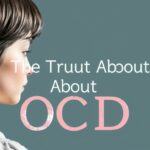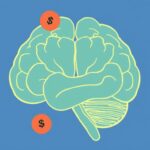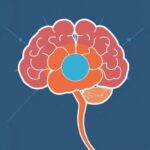The human personality is a complex and fascinating subject, filled with a wide range of traits that influence our behaviors, decisions, and interactions. Among these traits, there exists a cluster known as the Dark Triad of Personality. This triad consists of three distinct but overlapping characteristics: narcissism, Machiavellianism, and psychopathy. These traits are considered «dark» because they are often associated with socially aversive behaviors—manipulation, callousness, and a self-serving approach to life that can be harmful to others. But what exactly makes up the Dark Triad, and why is it important to understand these personality dimensions? Let’s dive into each of these traits, how they play out in daily life, and why this darker side of personality matters.
What is the Dark Triad of Personality?

The Dark Triad of Personality was first coined by psychologists to describe a set of three personality traits that tend to co-occur but remain distinct in their own ways. These traits are narcissism, Machiavellianism, and psychopathy. While each can present in varying degrees in individuals, people exhibiting high levels of these traits often have a profound impact on their social and professional environments, often negatively.
Narcissism is characterized by grandiosity, entitlement, and a constant need for admiration. Machiavellianism refers to a manipulative and strategic mindset, often prioritizing personal gain over morality. Psychopathy includes traits such as a lack of empathy, impulsivity, and antisocial behavior. Although sometimes these characteristics overlap, it’s their combination that forms the Dark Triad, setting them apart from other personality constructs.
Understanding the Dark Triad is important for psychologists, employers, and anyone interested in social behavior because it helps explain why some people may engage in harmful or manipulative actions. Recognizing these traits can aid in managing interpersonal relationships and creating healthier environments.
The Components of the Dark Triad
Let’s explore each component in more detail, highlighting their distinct features and how they manifest.
Narcissism
Narcissism is perhaps the most well-known of the Dark Triad traits. People with narcissistic tendencies crave attention and admiration. They often have an inflated sense of self-importance and believe they are superior to others. However, beneath this surface can also lie insecurity and vulnerability. Narcissists typically struggle with criticism and may react aggressively if their ego is threatened.
Typical behaviors include boasting, exaggerating achievements, and seeking constant validation. Narcissism isn’t always destructive—in moderate doses, certain narcissistic traits like confidence can help people achieve goals. However, when extreme, narcissism can damage relationships and lead to social isolation.
Machiavellianism
Named after the political philosopher Niccolò Machiavelli, Machiavellianism is all about manipulation and strategic thinking. Individuals high in Machiavellianism are skilled at deception and often view others as tools to be used rather than as equals. They prioritize personal gain and are willing to be ruthless in their pursuit of power.
Unlike psychopathy, Machiavellianism emphasizes careful planning and long-term manipulation rather than impulsivity. People who score high in this trait may be excellent negotiators, strategists, or even skilled in corporate politics. Nevertheless, their lack of sincere empathy makes trusting them difficult.
Psychopathy
Of the three, psychopathy is perhaps the most severe and alarming. Psychopaths typically exhibit a lack of remorse or empathy, impulsive behavior, and often engage in antisocial or risky actions without regard for consequences. Though psychopathy is often linked to criminal behavior, it exists on a spectrum, and not all psychopaths are criminals.
Psychopathic individuals may appear charming on the surface, but their emotional shallowness and inability to form genuine attachments set them apart. Impulsivity and a thrill-seeking nature can lead to reckless decisions, making psychopathy dangerous when unmanaged.
How Does the Dark Triad Show Up in Real Life?

You might be wondering; where do these traits show up, and can you spot the Dark Triad in everyday situations? The truth is that most people exhibit some combination of these traits at different times, but what matters is the intensity and impact.
In workplaces, individuals high in Dark Triad traits may climb the corporate ladder by manipulating others, showing ruthless competitiveness, and seeking constant recognition. Studies in organizational psychology have found that while these traits can sometimes correlate with leadership, they often lead to toxic work environments and poor team morale.
In personal relationships, people with high Dark Triad traits might engage in deceit, emotional manipulation, or show little regard for their partner’s feelings. These behaviors can cause significant distress and break down trust over time.
Examples and Behaviors
To better understand the Dark Triad, here’s a table that outlines typical behaviors for each trait:
| Trait | Key Behaviors | Common Social Impact |
|---|---|---|
| Narcissism |
|
Damages close relationships, creating conflicts |
| Machiavellianism |
|
Undermines trust, fosters competition and deceit |
| Psychopathy |
|
Can lead to harmful or reckless behavior |
Why Does the Dark Triad Matter?
If these traits are so negative, why do they even exist? Evolutionary psychologists suggest that traits within the Dark Triad might have had survival advantages in certain environments. For example, having a bold, ruthless personality could have helped individuals secure resources or status. In modern society, however, these traits often clash with the value placed on cooperation and empathy.
Understanding the Dark Triad offers several benefits:
- Better interpersonal awareness: Recognizing these traits can help you protect yourself from manipulation or emotional harm.
- Insight into workplace dynamics: Employers can spot toxic behaviors early and foster healthier teams.
- Improved mental health interventions: Therapists and counselors can tailor strategies for clients exhibiting these traits.
Recognizing shades of these personality features can help explain the «why» behind difficult behaviors, paving a path toward more mindful interactions.
Dark Triad and Psychology Research
The Dark Triad has been extensively studied to understand its relationship with various psychological and social outcomes. Research shows that people with high scores in the Dark Triad traits tend to have lower emotional intelligence but higher confidence in manipulative dealings.
Some studies have examined the correlation between the Dark Triad and success in competitive fields such as business, politics, or even online environments where anonymity encourages more exploitative behavior. However, the cost often comes in the form of broken relationships, ethical breaches, and emotional damage.
Psychological assessments such as the «Dark Triad Dirty Dozen» questionnaire help researchers and clinicians measure these traits efficiently.
Can the Dark Triad Traits Change or Be Managed?
It’s important to note that personality traits, including those in the Dark Triad, are not necessarily fixed. While they tend to be stable over time, people can develop greater self-awareness and learn strategies to manage or reduce harmful behaviors.
Therapeutic approaches such as Cognitive Behavioral Therapy (CBT) can help individuals recognize harmful thought patterns associated with narcissism or psychopathy and cultivate empathy and prosocial behaviors. Emotional intelligence training is another tool that can reduce the negative social impacts of the Dark Triad.
For people who regularly interact with individuals high in the Dark Triad, learning conflict management and setting clear boundaries can offer protection and preserve well-being.
Strategies for Coping with Dark Triad Traits in Others
If you suspect someone in your life exhibits Dark Triad traits, here are some practical steps to consider:
- Set clear limits: Be explicit about what behaviors are unacceptable.
- Maintain emotional distance: Avoid engaging in manipulative emotional games.
- Seek support: Talk to trusted friends or professionals if you feel overwhelmed.
- Use facts: When dealing with deception or gaslighting, focus on objective information.
- Prioritize self-care: Protect your emotional health by taking time for yourself.
These strategies can help you navigate relationships with difficult personalities without losing your sense of self.
The Dark Triad in Popular Culture

The concept of the Dark Triad has permeated popular culture in stories, movies, and TV series. Classic villains embody these traits—charismatic but manipulative narcissists, cold and calculating Machiavellians, and sinister psychopaths. Understanding the Dark Triad helps us analyze characters more deeply and reflect on the darker aspects of human nature.
Interestingly, some protagonists in fiction display mild Dark Triad traits, using them to succeed in complex environments. This shows that these traits can be a double-edged sword, bringing both power and loneliness.
Suggested Reading and Resources
If you’re intrigued by the Dark Triad and want to explore further, here are some books and resources you might enjoy:
| Title | Author | Description |
|---|---|---|
| The Wisdom of Psychopaths | Kevin Dutton | Explores how psychopathic traits can lead to success in some areas. |
| The Narcissism Epidemic | Jean M. Twenge & W. Keith Campbell | Examines the rise of narcissism in modern culture. |
| Dark Psychology: The Practical Uses and Best Defenses of Psychological Warfare in Everyday Life | Michael Pace | A guide on detecting and defending against manipulative behavior. |
Conclusion
The Dark Triad of Personality—narcissism, Machiavellianism, and psychopathy—represents a fascinating but troubling aspect of human nature. While these traits can sometimes help people get ahead, they often come at a high personal and social cost, creating conflict, mistrust, and emotional harm. By understanding the Dark Triad, we gain insight into why certain individuals behave the way they do and can develop strategies to protect ourselves and foster healthier relationships. Whether in the workplace, in social settings, or even within ourselves, appreciating the complexity and impact of these personality traits empowers us to navigate the shadows within with greater wisdom and care.




















